“He loves being outside in the olive groves and particularly has a talent for picking snails!” Chloe Dimitriadis says of her 2-year-old son, Orpheas. Chloe marks the sixth generation of the Dimitriadis family to run Biolea (Bee-oh-lay-a), a family-owned company that estate- produces and bottles stone-milled, cold-pressed, organic olive oil on the island of Crete in Greece. Perhaps some day Orpheas will carry the Biolea torch, but for now, he enjoys roaming the grounds of Biolea. And if ever there were a time to be outside and staying close to home, it’s during the COVID-19 pandemic. “In these difficult times, we have learned to appreciate…the simple…things in life,” says Chloe. “As a typical Cretan family, we feel blessed to gather around the table and dip some freshly baked bread into what ancient Greeks called liquid gold.” Biolea Extra Virgin Olive Oil
In the small village of Astrikas in the town of Kolymbari in Crete, Biolea’s 100 acres is home to 3,000 organically-grown olive trees and their single-estate olive oil mill situated on the edge of a dramatic gorge facing the breathtaking view of ancient mount Rokka. Slivers of the Mediterranean Sea glimmer beyond the enormous jutting rock formations.
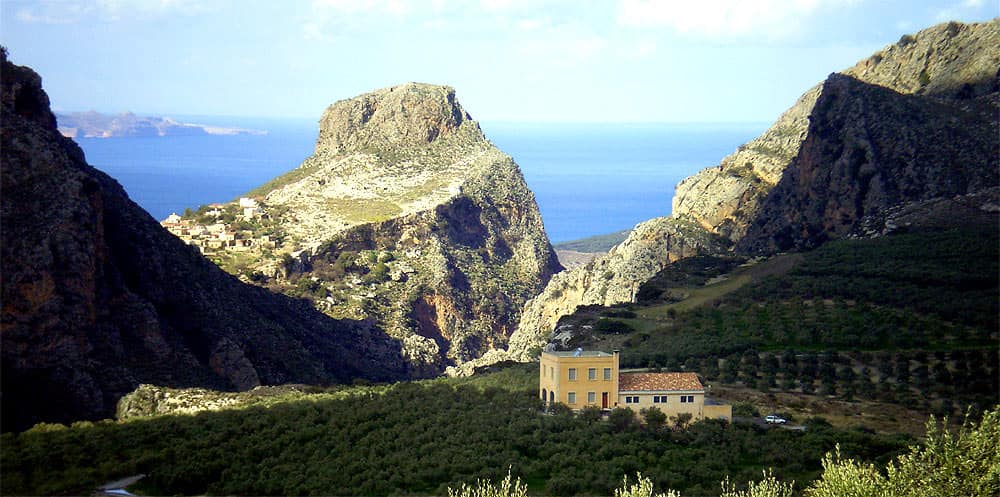
The land has been in the Dimitriadis family since the 1800s; however, olive oil production did not begin until 1997 when Chloe’s father, George Dimitriadis, embarked on a mission to build Biolea into a thriving, sustainable, traditional yet innovative company.
In 2015, equipped with a degree in political science from McGill University in Montreal, Canada and armed with many years of hands-on involvement at Biolea (like picking olives, working on the production machinery, management and promotion), Chloe became the Director. “After 20 years at Biolea I think it is time for me slowly to get some rest,” George says in the letter announcing his daughter’s new role as Director. “I am most confident that she will bring her intelligence, skill, energy and enthusiasm to Biolea and that she will take the company to the next level.”
And she has most certainly done that–honoring her father’s vision of tradition merging with innovation while bringing fresh ideas to Biolea, such as safely opening an outdoor cafe during COVID-19 where visitors can take in the stunning vista of the olive groves, mountains and sea while sipping coffee or wine (or Olive Leaf Iced Tea– a big hit this summer).
But how did it all begin?
“My father…had a dream to return to his ancestral roots in Crete after being abroad for many years, and continuing a tradition that had been passed on in our family for generations,” says Chloe. “Family, heritage, sustainability, innovation, accountability, quality: these are the values we take pride in knowing are the foundation of our company.” She adds, “Even more so for me now that I can see my son growing up among my great-great grandfather’s olive trees.”
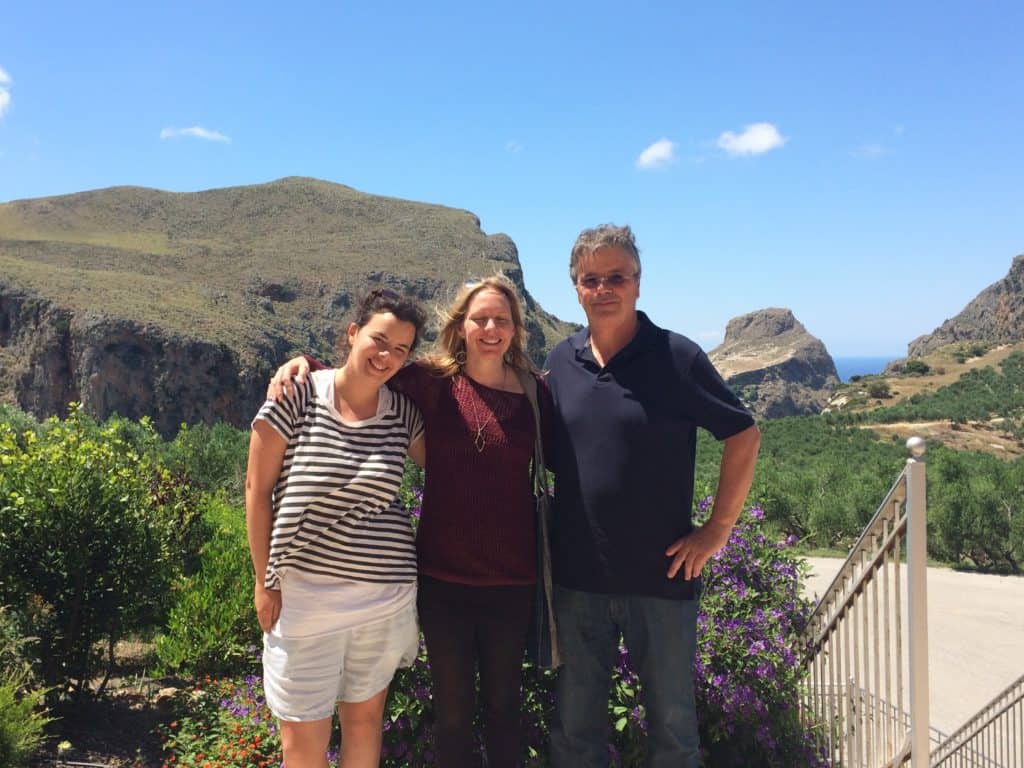
Chloe and Orpheas live right next to the estate and the toddler loves to trail behind his grandfather George. “He is very close to my dad and follows him around trying to use tools and ride the clark around the factory,” Chloe says of her son. “I think he has the mind of a mechanic as he loves tools and trying to mend things.”
But the current incarnation of Biolea that is Orpheas’ world today– sustainable, organic olive groves; vibrant eco-tourism and community; a traditional stone mill with modern upgrades—has been a long time rebuilding.
George’s return to Crete was 27 years ago, and he was saddened by what he found.
“Much of the production had been industrialized,” says Chloe. “The farming methods were completely destroying the environment and the health of people surrounding it, and most of the emphasis was being placed on quantities produced rather than focusing on the actual quality of olive oil.”
The challenges were many. Where to begin? Do you recall the dramatic rocky landscape and glittering Mediterranean Sea? It sounds majestic. Well, it is, but the region is also arid and prone to drought. To give a picture, some other words or phrases for “arid” are “waterless,” “dry as a bone,” or “parched.”
What could grow and produce delicious fruits under these conditions: The mighty and hearty Koroneiki olive variety, cultivated on the island of Crete for more than 3,000 years. “The cultivation of Koroneiki, especially when organic and arid, is difficult in our micro climate,” says Chloe. She adds, “[But] it creates our products’ unique organoleptic and phenolic characteristics.” In other words, she says, “It is also what expresses the olive oils’ aromas, flavors, and health value.” In fact, the health properties of Biolea’s oil has garnered much attention. “An olive oil is measured by its polyphenol/antioxidant content,” Chloe says. “Polyphenols in olive oil, especially oleocanthal and oleacein, have been found in studies to be related with anti-inflammatory, antioxidant, cardioprotective and neuroprotective activity.”
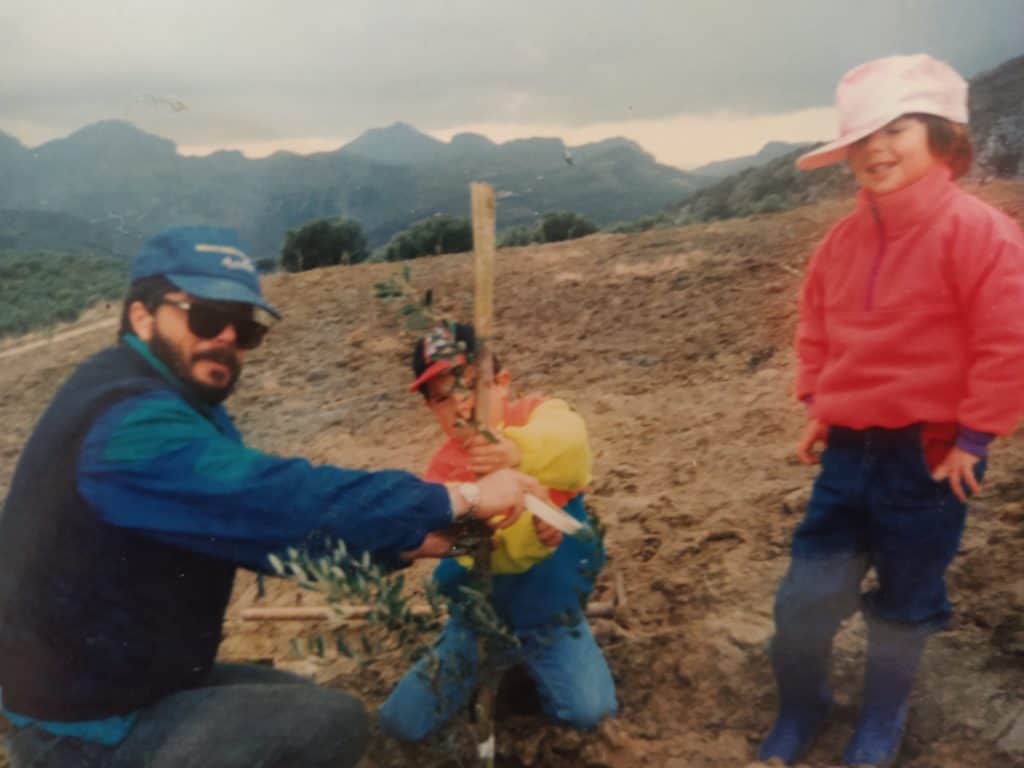
Biolea olive oil has up to seven times more total polyphenols than the average olive oil. “Along with a EU Health Claim certificate which is only carried by olive oils with analyses to prove that they have enough phenols/antioxidants to be categorized as healthy olive oils,” Chloe says, “you will find a PDO (protected designation of origin) certificate which certifies that our olive oil is exclusively produced and bottled in the area of Kolymbari.” READ MORE HERE.
Good stuff. How do you achieve these health benefits? Why would one producer have a healthier olive oil than another?
The key element to preserving these health properties is the process of production. Basically, how the olives are cultivated, harvested and milled. For more than 20 years, Biolea’s Astrikas Estate has farmed organically without the use of pesticides, herbicides or chemical fertilizers. And beyond organic cultivation, Biolea developed other sustainable farming methods including arid cultivation (waterless farming) which results in lower harvest yield but conserves the island’s water supply, as well as avoids the use of non-biodegradable PVC plastic irrigation pipes. Additionally, Biolea discontinued the use of heavy machinery in their fields to aid in the prevention of soil erosion, an increasing issue of concern on Crete.
Then there’s the milling. Upon first look, Biolea’s mill seems to be a traditional stone mill. However, the Dimitradias family has restructured the old stone mill to function in a cleaner and more innovative way. “The old stone mills that still operate and produce olive oil are of very old technology,” George says. “They cannot be licensed for HACCP [Hazard Analysis Critical Control Points] or any other reliable food quality standard. Also they are made of carbon steel—not stainless steel—that can introduce heavy metals to the olive oil.” [1]
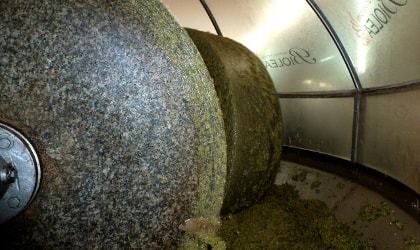
So George embarked on a mission to revitalize the old stone milling method by bringing it up to modern standards. He wanted the mill to be certified by the most strict food standards while using no water (except for equipment cleaning) or heat which many modern production facilities use to improve efficiency. Biolea produces only 1,000 kg olive fruit in about three hours while the average modern facility produces up to 10,000 kg olive fruit in one hour. However, both the heat and water used in the industrialized production destroy the oils’ natural aromas and health properties. These methods also create a lot of waste that is not properly assimilated back into the environment. Biolea’s mill uses half the energy consumption of a typical factory and solid waste leftover from pressing (pits, olive skins) is recycled by drying it in the summer sun, mulching it and using it as fuel for the furnace in the winter.
“The past two decades our goal has been to keep our roots in olive oil production but improve the process and standards through our company Biolea,” Chloe says. “By innovating the traditional millstone and press to meet today’s food safety standards we were able to produce a true cold pressed olive oil full of health benefits through a process which is very sustainable towards the environment.”
And if you think creating this traditional stone mill with modern innovations sounds like a massive undertaking, you’d be right.
“When most people hear that my father invested in a modernized stone mill and hydraulic press production method they think he is crazy!” says Chloe. “This method is much more time-consuming, labor-intensive, and does not produce as much olive oil as the modern method.” But it has been more than worth it. Not only do Biolea’s sustainable methods preserve the environment, they have revitalized a lost connection with community olive pressings that was once tradition in nearly every village on Crete during the milling season and beyond. Biolea believes they have an “ethical responsibility…to actively promote proactive interaction between food producers and consumers.” [2]
Visitors can learn Cretan traditions while viewing the milling and production processes, tour the grounds, visit the cafe, view art exhibits or hold ceremonies or events there which, of course, have needed amending during COVID-19, but will once again soon return to a source of community and gathering.
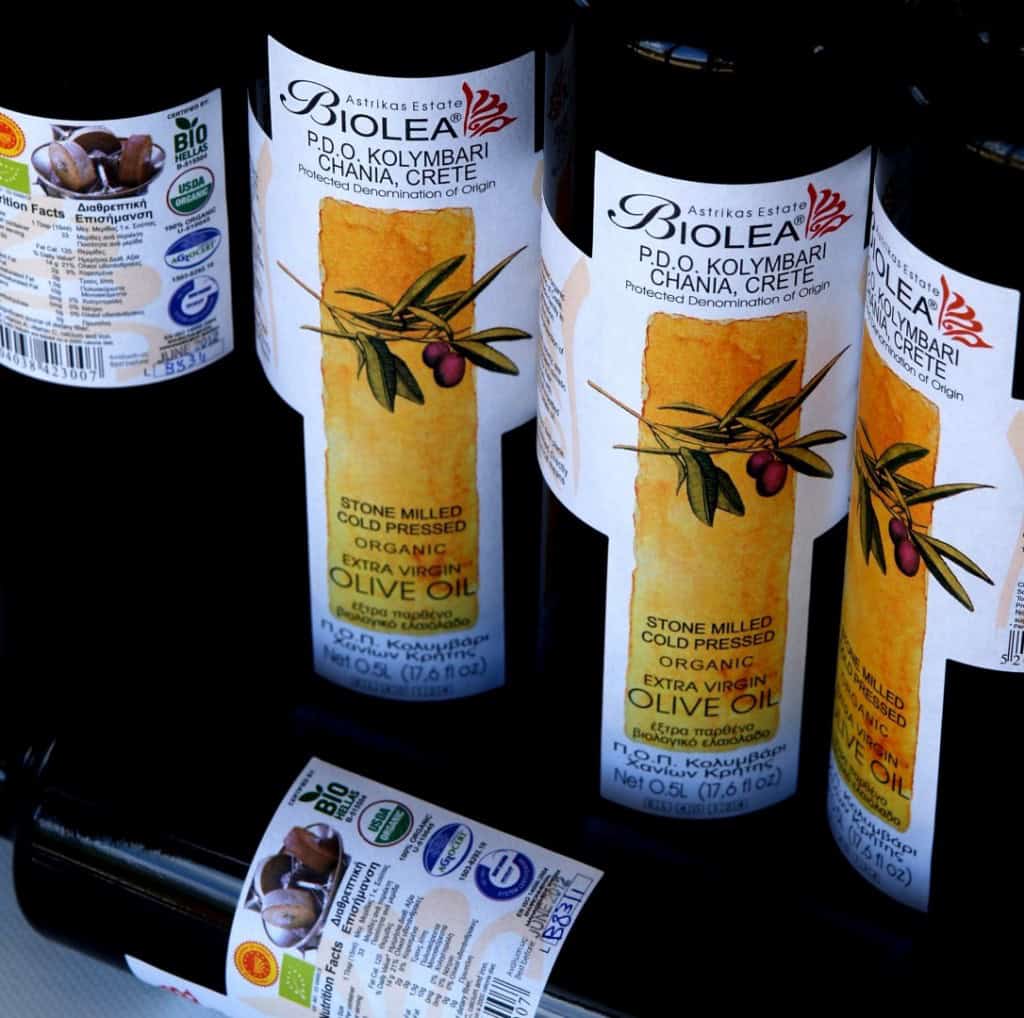
“I think we leave the greatest impression on visitors who come to the mill during production in September and October,” says Chloe, “as they get to see our production live in action, experience the incredible aromas escaping from the stone mill crushing the olive fruit, and of course tasting the freshly pressed olive oil.”
How does it taste?
George Dimitriadis says it is a myth that Greek olive oils are characteristically heavy: “Cretan people, they like their olive oil to be mild because we eat much of it.” So Biolea olive oil is well-balanced and mild with a touch of butteriness, a hint of sweetness and a soft herbal pepper at the end. Biolea also produces Nerantzi (bitter orange) oil made with Koroneiki olives cold-pressed with fresh whole bitter oranges. Their Lemonio oil is made in a similar way with locally grown lemons.
“We have many recipes that we love to use,” Chloe says. “But perhaps two of our favorites would be wild greens with lemon juice and olive oil as well as stuffed vine leaves with rice and herbs.” For a sweet tooth, Chocolate Chantilly with a drizzle of Nerantzi oil is to die for. The Lemonio oil is a delicious finish to a dish of salmon, zucchini and dill.
So, with Orpheas, the seventh generation of the Dimitriadis family marches on behind his mother and grandfather. “We will be very happy if Orpheas chooses to be part of the family business but we won’t put any pressure on him to do so,” Chloe says. “We will be proud of him whatever he chooses to do or be.”
But for now–whatever his future holds–he will pick snails and follow his grandfather through the olive groves among the thousands of mighty Koroneiki.
Written by Leska Tomash
[1] Weinzeig, Ari. “A Sweet, Buttery, Artisanal Olive Oil of the Future.” The Atlantic. 7 Feb 2011
[2] https://www.biolea.gr/about-us/